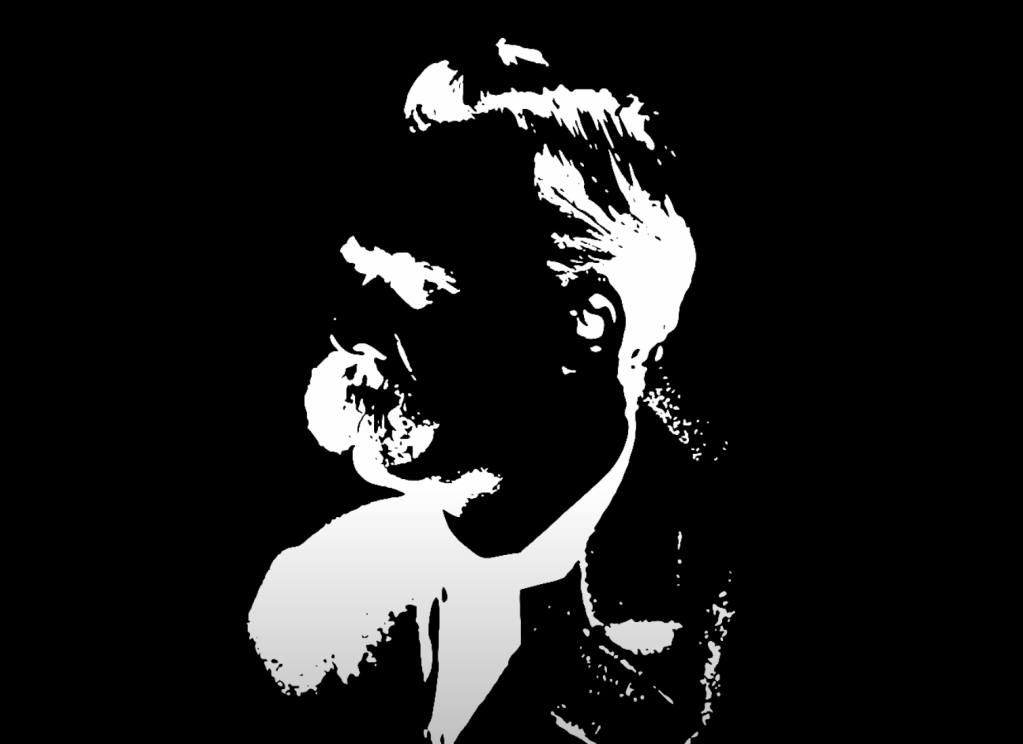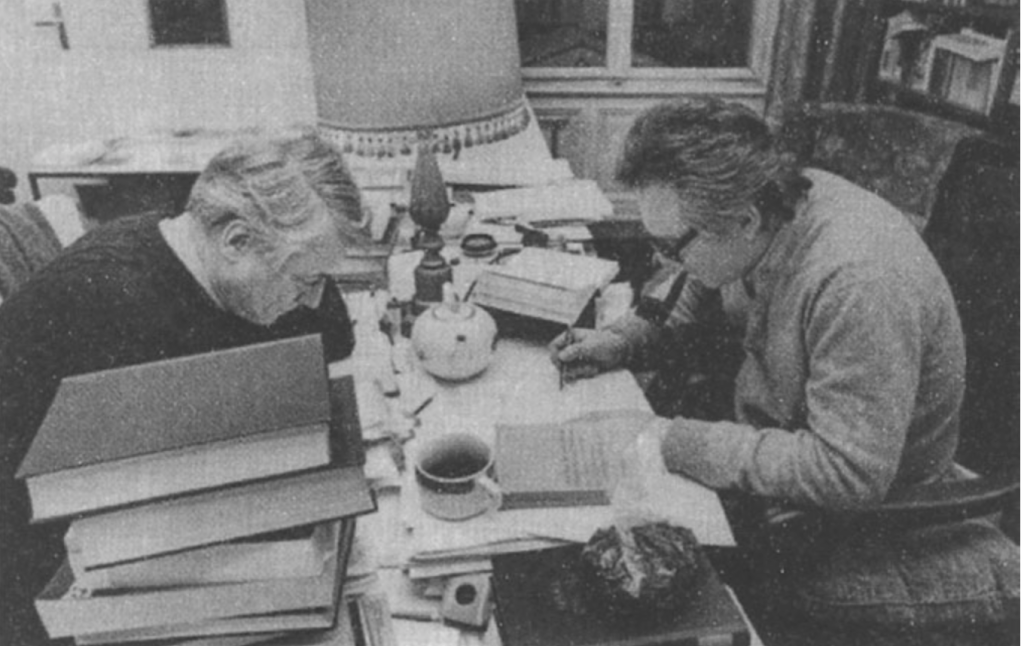Less Than Nothing: Hegel and the Shadow of Dialectical Materialism is Žižek’s most serious, all encompassing, and might I add, most well-structured work to date. While it does not announce a methodology for ideology critique as The Submie Object of Ideology, it consists of a series of problematization’s of every prior and current reader/reading of Hegel in a way that does not over-scrutinize Hegel too close to the details, but that sticks to many of the same ideas that Žižek has been developing for several years. This work is his best yet because it seems to achieve a kind of freeing of thought through interventions into ecology, ethico-political problems, sexuality all the while pitching the arguments from a highly nuanced and informed grasp of German idealist / philosophical problems such as negation, Understanding, reality, ontology and so on.
In “the big fat book” Žižek’s arguments and digressions breathe in and out in usual Žižekian fashion, however, the transitions between topics are not didactic as we find in his shorter more popular books such as Violence and Living in the End Times. Nor do the transitions from one topic to the next go too far afield or become nonsensical or even repetitive. They are focused and helpful. Žižek’s philosophy, when it is at its most original is still easy to read compared to say Deleuze or Badiou. I admire this about Žižek, however, it does lead me to remember less of his core arguments after I have finished the text. There is something about the struggle of philosophy that sticks with you, and at times, Žižek’s lucidity eludes me, his clarity goes beyond me. I read page after page and feel fine as it sinks in, but sometimes I feel empty after the race. Reading a thinker such as Hegel, or Badiou, is a slow and methodical, albeit structured and well argued series of proofs and propositions. Žižek is a race track thrill ride and he seems to err towards clarity through providing multiple extrapolations and examples. If Žižek were more like Badiou and more systematic, he would lay out his theses in advance and not jont through a series of digressions, jokes, and references to films. This style, however, is infectious, and as Adrian Johnston points out, there is a deep pattern and consistent philosophy at play. You could say that Johnston did for Žižek what Badiou tried to do for Deleuze; making their thought about a more singular series of primary philosophical comittments that return throughout all of their multitudinous interventions into cinema, pop culture, politics, etc.
Despite these reservations, Less Than Nothing is structured quite coherently in fact. It begins and ends with the practical political circumstances in today’s thought and takes us to the three great moments of philosophy, or the three great figures that philosophy was unable to move beyond: Plato, Descartes, and Hegel. We still stand at the precipice of the Hegelian moment, for Žižek, (an argument that he never fully articulates) because continental thought is still in a mode of response to Hegel. There are many who strongly disagree with this sentiment: deconstructionists, Heideggerians, and of course analytic philosophers, however, it’s worth reading the text to make up your own mind, and I’m still working on it!
What we do find is an honest attention to what Hegel cannot think, which includes the following:
Repetition – it is the movement of contingency, and is idealized into material consistency. Caeser had to die to emerge as Caeser the universal title.
The unconscious – Hegel can think the unconscious, but it is a formal transcendental unconscious. It is the formal – when we think we forget the universal form, this is Hegel’s form of unconscious. The structure of over-determination.
Truth and jouissance – The problem of jouissance as irreducible to truth.
The problem of mathematics – He reduced math to abstract reasoning. He argued that math is unable to conceive of true infinity.
Postmodern capitalism – When Hegel describes modern economy he was unable to think it all the way through because of objective social circumstances.
Objet petit a – and this is ultimately the motivation for the Less Than Nothing title of the text. Like the Fichtean Anstoss, which is uncannily close to Lacan’s object petit a, a stand in for a void, and the object cause of desire. We can only think the Anstoss, we cannot know it, just like object small a.
Sexual difference – Hegel is unable to think sexual difference in the mode of Lacan’s radical intervention; as in ideas such as “woman’s is man’s symptom.”
Despite these fairly major limitations, Žižek brings Hegel studies into a new domain, and goes beyond he predominant Hegelians of recognition, particularly the St. Louis school. One of the most consistent bones of contention is Robert Pippin, the American Hegelian who makes a point to “defend the bourgeois way of life” and who’s book on Kant and Hegel, The Persistence of Subjectivity becomes a sort of home base for continually setting the record straight on Hegel scholarship. While if Zizek’s primary critique of Hegel scholarship were the American thinkers such as Francis Fukuyama and other Leo Straussians then we might label his effort a sort of tilting at windmills. But he also detects misreading’s of Hegel in thinkers such as Derrida, who’s reading of Hegelian temporality is riddled with holes, as well as Žižek’s other two primary interlocutors; Lacan and Marx. While dedicating a sizable series of reflections and writing on Lacan’s evolution as a thinker who abandoned Hegel, and who moreover promoted a type of Heideggerian-Hegel vis-a-vis Kojeve; Žižek brings the point of abandonment of Hegel for Lacan into greater focus. What we find in Žižek’s reading of the late Lacan is in short a thinker who was never able to discover the formula that discovered the secret of desire. Lacan ended in failure.
There are certain repeating Hegelian gems for philosophy that Žižek brings out time and again throughout the text. For starters, Hegel is the only German idealist who was able to radicalize Kant’s separation between phenomena and noumena and then literalize the problem inherent to phenomena themselves. For Hegel, “behind the curtain of phenomena, there is only what we put there (Phenomenology of Spirit). There is an inherent inconsistency of all phenomena at an ontological level which is why we have an inability to experience the transcendental in-Itself. This inability to experience the in-Itself out of the inconsistency of the ontological reality is what forms the subject’s freedom.
Admittedly, Hegel could only think the evil of capitalism from an individual’s point of view and not from a systemic point of view, there is thus a perhaps valid overlap with conservatives today who posit Hegel as the philosopher of recognition and individualized markets, etc. While ascribing economic meltdowns and major unemployment, stock market crashes to just “a few bad apples” is constitutive of ideology at its purest in that it affirms the “individual critique”, Žižek points out a nice distinction for how, despite the fact that Hegel could not think concepts such as pure domination, or even the idea of a dispotif of hegemonic power and control, (vis a vis Foucault and Agamben) he was able to think the overcoming of capitalism from the standpoint of the immanent theory of negation. Hegel’s -and Marx’s for that matter- understanding of work cannot be transferred to the new post-industrial situation we face today, because he did not see the factory or the way that abstraction would impinge upon workers.
Much of the text describes -in intricate attention to nuance in Hegel- the precise way that dialectics happens, and most of the examples are incredibly insightful. Žižek attacks the cartoon version of Hegel, where the dialectic consists of a “synthesis of opposites”; that all too familiar dialectical procedure that seeks to promote reconciliation through a “balancing of the extreme poles.” This approach, which was perhaps popularized by thinkers such as Jung, misses for Žižek, what the nature of negation really is. There consists in any negation of negation a prior negation inherent in the object itself.
Implicit in reconciliation is a shift in perspective. The negation of negation is nothing other than a shift in perspective. The problem of the “idealist” type of reconciliation is a pseudo balancing of the extremes. Take the issue of fundamentalism. Our solution to solving fundamentalism is to strike a balance with permissive individualism; to shift our perspective and promote a recognition that the fundamentalist is a reaction to a discord between a return to another communal way of life, a rejection of modernity. What this idea misses is the idea of determinate negation, which points out that the problem of negation is immanent to one form. The shift of perspective that constitutes negation of negation is thus a move from bad to worse, or a move from objective to subjective. This move reveals the radicality of Hegel, who did the same thing to the object. The phenomena, the Thing in-Itself becomes that which blocks access to itself. The question is not, how do I know God, but how does God develop in humans knowledge about himself? The absolute itself is broken. This loose shift in perspective, this immanent move is what completes the dialectical process. It ends in a space for subjective freedom because the subject is included in its movement.
Is this move not what Google Ideas needs to incorporate into their ongoing work on countering violent extremism? This think tank is premised on the idea that if we put former radicals (KKK members, al-Qaeda terrorists, IRA, and others committed to violent radical causes) that we can begin to develop a series of data both subjectively and empirically about the causes of radicalization and thus end violence. The think tank is predicated on the notion that reality that violent extremism presents us with a non-traditional data set: most terrorists post-9/11 in Islamic contexts are from well educated western lifestyles and are not the result of stark poverty but may be the thought leaders who seek to inspire those impoverished in Muslim countries with nothing left to lose.
The premise behind Google Ideas is that violent extremism can be fought if we recognize the inner human behind every former radical; that there is a certain fundamental malleability to identification with violent extremism. What is needed, aside from this recognition, are programs to bring the potentially radicalized subjects into new ways of identification with western society as such: gangs that promote good, the arts, music, etc. to re-direct the libidinal drive of passion that leads to radicalization into programs that have former radicals steering the agenda and making the rules up so they feel authentic and can integrate the subject’s foreign identity into the west more harmoniously.
The solution is thus to promote a more harmonious integration of individuals from the target group into society. The point of determinate negation in this matrix would be located within the permissive individualism that produces the subject of potential wild violence. The typical reading of the negation of negation is that the first negation is a splitting of particularization of the inner essence, its externalization, and the second negation the overcoming of that split. This mode of negation of negation has led Mao and Stalin to criticize Hegel for a magical happy ending that is predestined. For Hegel, the negation of negation does not involve a type of re-inscribing of the excess, or the symptom, or formerly alienated substance. On the contrary, the negation of negation is a more radical gesture which has to do with assuming the failure inherent in the universal itself. The shift of perspective needed to produce a dialectical sublation to the situation of Google Ideas is thus not to precisely to problematize the universal integration model as the site where the production of the symptom of radicalization takes place.




Leave a comment